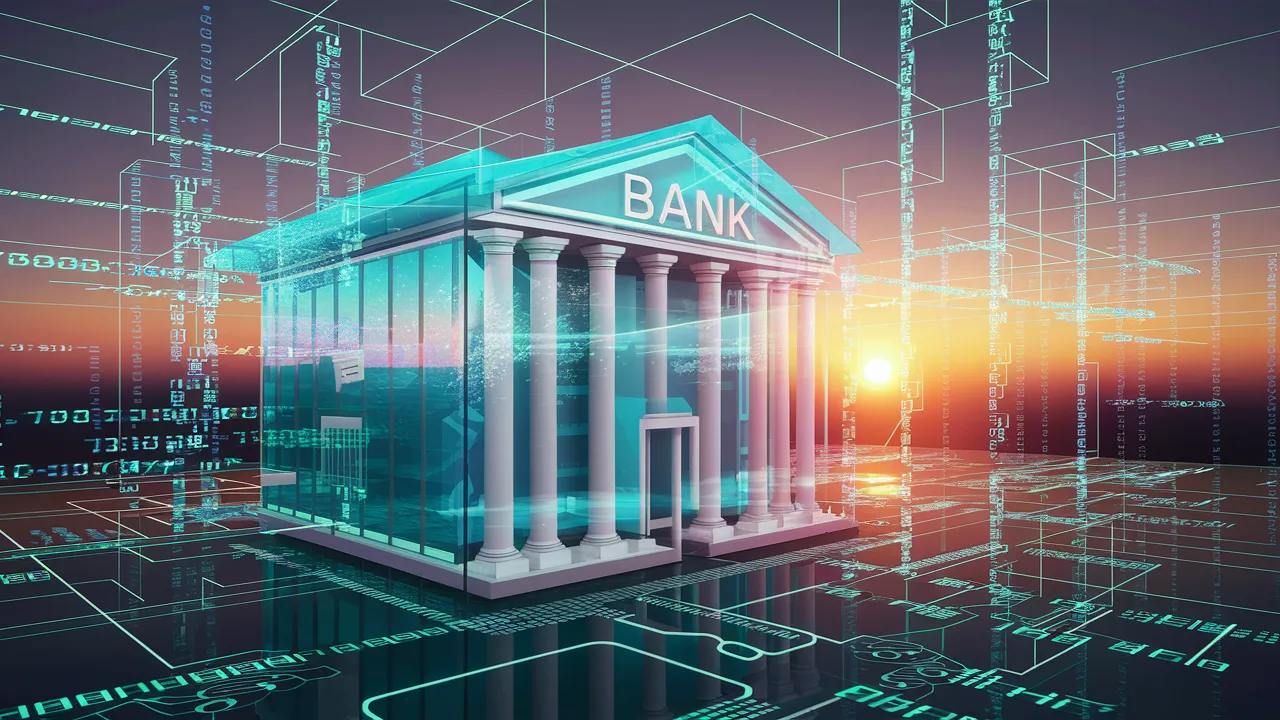What is Blockchain?
The newest technology that brought disruption to the world of Fintech is blockchain. But what is the significance of knowing about blockchain technology and the future of banking?
Though being one of the most resistant sectors to technological disruption in history, banking is currently centered on re-establishing trust with its clients through technology after influential events such as the global financial crisis. We will look into blockchain technology and the future of banking implementation in financial services through this blog. We will shed light on the advantages of blockchain for cybersecurity impacts, and what’s next.
Due to the integrated banking system and processes, blockchain technology is regarded by banks as critical for their provision of faster client settlement. Why?
• Blockchain is a distributed ledger platform whereby all parties in an exchange can authenticate and accept transactions before getting entrenched as part of the chain. This being a decentralized computer network there is no one central computer system that eventually can get hacked and corrupted, thereby making the entire secure.
• In addition to the fact that FinTech does well compared with its billion-dollar competitors in terms of agility, it is also capable of dealing with highly regulated environments where banks are afraid to move because they risk giant-sized financial penalties. Soon, fintech firms and banks will be able to provide services with minimum friction.
Therefore, technological things such as blockchain in banking will facilitate many processes like equity settlement across country payments. How the regulators will react to this continuously changing environment is a big challenge.
Blockchain technology and the future of banking
• According to economic theory, low-cost competition will have a cost advantage only if it shares the market with high-cost competitors. This principle applies as long as the market competition forces all banking systems to pass back on stream initial gain for individuals who adopted blockchain technology first.
• Blockchain technology is not restricted to digital currencies such as Bitcoin or developing new forms of fintech. The scope of this smart contract does not stop at areas such as document provenance, ownership rights, digital or physical assets, and preventing fraud. For example, a digital ledger for diamond identification and transaction verification has helped to improve the transparency of a once highly opaque market in diamonds.
Ways That Blockchain Is Used in Financial Services.
It is no surprise that the banking industry would revolutionize using blockchain, and all it takes to change how clients conduct their business. It is a replacement and simplification of established banking procedures using innovative, safer, more efficient, cost-effective, and transparent methods. Here are some of the ways is transforming which online blockchain technology and the future of banking.
1. Blockchain expedites international transfers
There are many ways through this Blockchain Expedites International Transfers. Capital markets contain pairs of issues and investors inter-matched for a counterpart risk–return profile. There are limited strict monitoring and regulatory practices for firms that face liquidity risks, interest rate volatility as well as other financial problems.
Blockchain has the potential to transform capital markets because it eliminates operational risks that lead to robbing and human error losses, as well as reduces general counterparty risk. With the digitization and tokenization of financial goods, assets become much easier to trade opening up opportunities for global inclusivity which provides connectivity while fractionalized ownership increases liquidity thus reducing capital cost.
2. Blockchain creates an audit trail
It gives security through the blockchain that eliminates financial fraud and data sameness while allowing auditing. Blockchain networks are protected by thousands of ledgers; data cannot be altered unless approved by all network users. This considerably worsens the situation for hackers and prevents them from penetrating, and compromising sensitive information, shielding victims from hundreds or thousands of dollars in losses.
3. Customers and banks save money through Blockchain
The banking processes can be automated with blockchain, which will lead to the faster processing of payments and loans as well as smooth transaction-related workflows. The cost that may be incurred due to poor reconciliation and record keeping is very high as it could bring on fraud. Blockchain enables the automation of several aspects of digital transactions that facilitate increased productivity and safeguard against cyber threats.
4. Blockchain ensures compliance
Blockchain enhances network management through the regularity of processes and automation compliance. As financial institutions operate beyond borders, they need to have measures that will keep them compliant in the complex environment of regulatory changes.
Compliance with regulations is important in the trading and eCommerce sectors as well. Blockchain technology streamlines real-time financial operations and makes reporting, and transaction validation easier.
Does Blockchain Help Mitigate Cyber Risk?
Network-level cybersecurity is the alternative that organizations can adopt to address potential security gaps. Open dialogue can be relished by several regulators in the industry, and policymakers recognize the exceptions of blockchain technologies arising from their cybersecurity merits.
Cyber threats are away in the financial sector, and as new dangers surface; personal details must be protected. Most new activities in the retail banking sectors have not been implemented at scale because they spend greatly on blockchain frameworks.
In the UK, the Financial Conduct Authority (FCA) is developing policies suitable for blockchain use; while in America people are convinced that it has dangerous inherent risks. While blockchain-based ETFs have been blocked by the Securities and Exchange Commission (SEC) in the US, traditional banks lose up to USD20 billion because of identity fraud; conversely, blockchain ledgers protecting data traceable for any changes that permit automated detection of money or capital laundering cannot occur.
An important aspect of blockchain technology is its numerous types of peace mechanisms, which make the shared ledgers more reliable. Blockchain technology improves the resilience of financial systems and makes consensus an essential requirement for functioning within a network. All blocks in the chain must be validated before new information is inserted or edited.
It is difficult to corrupt blockchains because the participants have increased transparency thus, cloud-based blockchains for cybersecurity providers come with extra safeguards. There is a takeaway here: blockchain technology can contribute to an overall cybersecurity posture within the organization by improving its resilience against emerging threats.
What Does the Future Hold?
With the help of SWIFT (Society for Worldwide Interbank Financial Telecommunications), banks from all over the world are taking part in global payment initiatives and trying to enhance the cross-border payment experience. SWIFT makes use of blockchain technologies, collaborating with active providers and giving access to banks so that customers can transact using cryptocurrency. The relation of e-commerce cryptocurrency emanates from the attributes inherent in cryptocurrencies. Blockchain technology is shaping the future of e-commerce cryptocurrencies offering security, transparency, lower transaction fees, and quick transaction capabilities.
However, the use of blockchain technology enables a drastic reduction in several required participants to resolve banking-related questions and implement standards thereby already these can be mentioned as significant changes.
The technology manages several intricate resolution processes, including invoice generation; and financial decision-making approvals of loans and applications. One of the great advantages is access to the future of banking services, which means that new economic flows open up globally for people who do not have bank accounts (Baig, 2023).
Conclusion
Blockchain has exhibited potential bearing in the future of banking, but it is a young technology and there are challenges yet to be addressed. With its implementation, banks are being pressed by several issues; despite the enthusiasm worldwide for this project no government has acknowledged and approved any use case of it. But this is not an obstacle to its implementation, and blockchain can also improve the situation in capital markets, cross-border transactions, and trade finance of tomorrow.
How blockchain technology is used in banking?
Applying blockchain technology to banking can be the answer in this regard. Blockchain technology makes it possible as a secure and efficient P2P method to eliminate inefficiencies throughout the organization, reduce dependence on intermediaries significantly save costs for the entire industry.
How blockchain technology is the future?
Blockchain is an important networking technology for creating smart cities since it allows optimization of the process, maintaining security guarantees, and increasing trust between participants. Decentralization is the future of information technology.
How blockchain is adopted in the banking sector?
Blockchain has led to a broad spread of applications in the banking sector, among others. The technology enables institutions to save on operational costs because they do not have to monitor the transactions—an opportunity cost and time reduction while enhancing end customers.
What is the future of blockchain in trade finance?
As soon as trade finance operations migrate to blockchain, it will become possible to: Replace slow manual systems with automated self-executing smart contracts.
Why blockchain is becoming a popular technology for mainstream banking?
The future advantages of blockchain may be better security, decreased costs involved during transactions at trading platforms with increased efficiency, and availability of fiancé for the unbanked population. Blockchain is a major force in digital payments and financial services transformation. It provides better security, speed, accountability, and efficiency.
What are the benefits of blockchain technology?
Blockchain technology makes sharing data across several parties safe, transparent, and efficient. As what participants are presented with is irrevocable and cannot be altered, blockchain can provide them with trust in the data.











